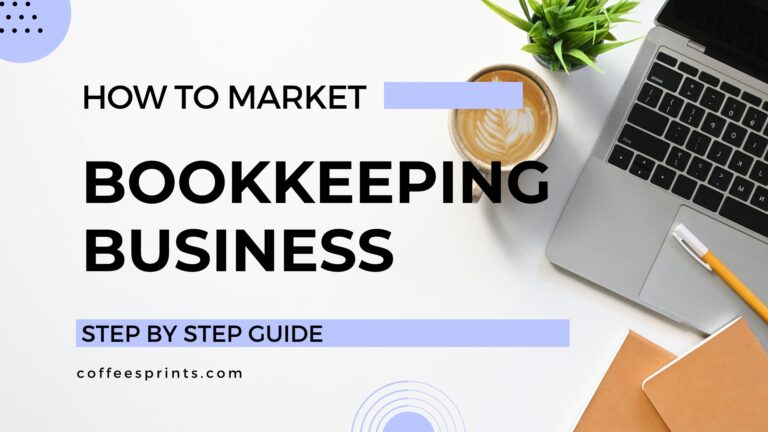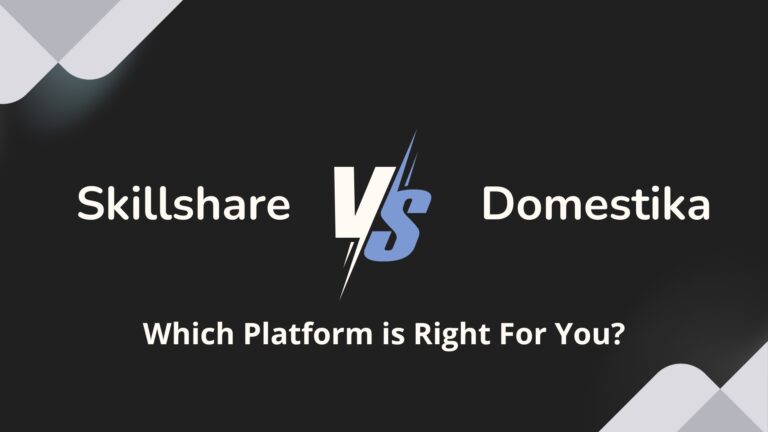Best Gumroad Alternatives | 18 Places to Sell Your Digital Products
Tired of watching Gumroad take a hefty bite out of your hard-earned sales? Trust me, I get it.
When I first tried selling digital products back in 2022, I was drawn to Gumroad’s simplicity.
Don’t get me wrong, Gumroad deserves credit for starting the easy-sell-anything model that helped countless creators like us monetize our work. But times have changed, and so have our options.
Let me make it clear to you. When you’re just starting, giving away 10% plus transaction fees might seem reasonable. But as your sales grow, watching a big chunk of your money disappear each month for essentially the same service feels daunting.
In this guide, I’ll walk you through the best Gumroad alternatives that might just transform how you sell your ebooks, courses, templates, or any digital goods.
Let’s look into the options now.
Top Gumroad Alternatives – Comparison (Table)
Before we dive into the details of each platform, here’s a quick comparison chart to help you identify which alternatives might be worth your time:
| Platform | Transaction Fees | Monthly Fee | File Size Limits | Custom Domain | Email Marketing | Memberships | EU VAT Handling |
| Gumroad | 10% + $0.30 (free), 5% + $0.30 (paid) | $0-$12/month | 16GB | ✅ | Basic | Basic | ✅ |
| Payhip | 5% (free), 2% ($29/mo), 0% ($99/mo) | $0-$99/month | Unlimited | ✅ | Basic + integrations | ✅ | ✅ |
| Sellfy | 0% | $29-$99/month | 10GB | ✅ | Advanced | ✅ | ✅ |
| Sendowl | 0% | $15-$39/month | 2GB | ✅ | Via integrations | ✅ | ✅ |
| Podia | 0% | $39-$89/month | Unlimited | ✅ | Advanced | ✅ | ✅ |
| Paddle | 5% + $0.50 | $0 | Unlimited | ✅ | Via integrations | ✅ | ✅ |
| BigCommerce | 0% | $29.95-$299.95/month | Unlimited | ✅ | Advanced | Via apps | ✅ |
Additional Gumroad Alternatives Contd.
| Platform | Transaction Fees | Monthly Fee | File Size Limits | Custom Domain | Email Marketing | Memberships | EU VAT Handling |
| StanStore | 5% + $0.30 | $0 | 5GB | ❌ | Basic | ❌ | ✅ |
| ConvertKit/Kit | 3.5% + $0.30 or 0% (paid plans) | $0-$99/month | 100MB | ✅ | Advanced | ✅ | ✅ |
| Ko-fi | 0% (paid), 5% (free) | $0-$6/month | 2GB | ✅ | Basic | ✅ | ❌ |
| Beacons | 9% (free), 5% ($10/mo) | $0-$25/month | 1GB | ✅ | Basic | ❌ | ❌ |
| Easy Digital Downloads | 0% | $99-$499/year + hosting | Depends on hosting | ✅ | Via WordPress | Via extension | Via extension |
| Buy Me a Coffee | 5% | $0 | 1GB | ❌ | Basic | ✅ | ❌ |
| Checkout Page | 5% + $0.30 | $0 | 500MB | ❌ | ❌ | ❌ | ✅ |
| Teachable | 5% + $1 (free), 0% (paid) | $0-$299/month | Unlimited | ✅ | Advanced | ✅ | ✅ |
| Thinkific | 0% | $39-$399/month | Unlimited | ✅ | Advanced | ✅ | ✅ |
| Kajabi | 0% | $149-$399/month | Unlimited | ✅ | Advanced | ✅ | ✅ |
If you’re that person who just thinks of picking the one with the lowest fees, hold up. There’s more to consider than just the numbers!
Price too low, and you might sacrifice features that could boost your sales and save your time significantly. Price too high, and your fancy digital platform may eat away at profits.
In my experience working with digital and e-commerce platforms, the right platform isn’t always the cheapest—it’s the one that aligns with your specific needs, product type, and growth stage.
Let’s break down each alternative in detail to help you find your perfect match.
Top Websites Like Gumroad: Alternatives
Payhip
Payhip struck me as the perfect middle ground between simplicity and functionality. Their straightforward interface and customization options make your online store feel like, well, yours.
Pricing structure: Payhip offers three plans:
- Free: 5% transaction fee
- Plus: $29/month with a 2% transaction fee
- Pro: $99/month with 0% transaction fee
What I particularly appreciate is how this structure scales with your business. When you’re just starting out, you can go with the free plan and only pay when you make sales. Once your monthly fee is less than the transaction fees you’re paying, it makes sense to upgrade.
Personally, I’ve had a positive experience with Payhip when selling digital downloads in a different niche. Their analytics dashboard gave me clear insights, their customer support responded within hours (not days), and setting up new products took minutes. I never tried their blog option, though.
Key features:
- Unlimited products and bandwidth
- Customizable storefront
- EU VAT handling (a lifesaver for international sellers)
- Pay-what-you-want pricing option
- Embeddable buy buttons for your existing website
- Advanced coupon codes and bundle options
- Memberships and subscriptions
Who it’s perfect for: If you’re selling ebooks, digital downloads, or memberships and want a balance of simplicity, features, and fair pricing, Payhip is hard to beat. It’s especially good if you’re concerned about international sales and EU VAT compliance.
Sellfy
Sellfy stands out with its true zero-transaction-fee model and comprehensive feature set. Unlike many competitors that offer 0% transaction fees but then hit you with high monthly costs, Sellfy’s pricing is quite reasonable for what you get. It’s an all-in-one platform that handles everything from store design to email marketing.
Pricing structure:
- Starter: $29/month ($19/month annually) for up to $10k in sales
- Business: $59/month ($49/month annually) for up to $50k in sales
- Premium: $99/month ($79/month annually) for up to $200k in sales
They also offer a discount for annual plans. If you sell a decent volume and opt for the yearly plan, the price decreases significantly. For established creators, this is a no-brainer!
Key features:
- Zero transaction fees on all plans
- Built-in print-on-demand services
- Email marketing
- Shopping cart abandonment recovery
- Mobile-optimized storefronts
- Subscription products
- Embed options for your existing site
- Product upselling
- Pay-what-you-want pricing
- Multiple payment gateway options
Who it’s perfect for: Sellfy works best for creators with a steady sales volume who want an all-in-one solution. If you’re selling more than $600/month, the monthly fee easily pays for itself compared to Gumroad’s fees. It’s especially beneficial if you’re looking to sell both digital and physical products (via print-on-demand) in one place.
Sendowl
Sendowl takes a different approach from most Gumroad alternatives. Instead of providing a marketplace or storefront, it focuses on being an ultra-efficient digital delivery and cart system. This makes it perfect for creators with an audience who just need a reliable way to sell and deliver products.
Pricing structure:
- Basic: $15/month for 10 products
- Standard: $24/month for 30 products
- Premium: $39/month for unlimited products
All plans have zero transaction fees beyond the standard payment processor fees from Stripe or PayPal.
Key features:
- Drip content release
- PDF stamping (adds buyer info to prevent sharing)
- Gifting options
- Flexible licensing
- Detailed analytics
- Cart abandonment recovery
- Affiliate management system
- 1-click upsells
- Subscription products
Who it’s perfect for: Sendowl is ideal for creators who already have an established website or audience and just need a reliable backend for handling transactions and delivering digital goods. It’s particularly strong for those selling software, licensed products, or anything that requires sophisticated delivery options.
Podia
Podia goes beyond simple digital downloads to offer a comprehensive platform for courses, memberships, webinars, and digital products. It’s designed for creators who want to build a complete digital business rather than just sell individual products.
Pricing structure:
- Mover: $39/month ($33/month annually) for digital products and email marketing
- Shaker: $89/month ($75/month annually) adds courses, coaching, and memberships
- Earthquaker: $199/month ($166/month annually) adds additional team members and dedicated support
All plans have zero transaction fees beyond payment processor fees.
Key features:
- Unlimited everything (products, customers, bandwidth)
- Email marketing with unlimited subscribers
- Live chat messaging with customers
- Course creation with drip content
- Membership communities
- Webinar hosting
- Affiliate marketing
- Custom domain
- Integrations with major email providers
Who it’s perfect for: If you’re planning to create courses, build a membership community, or develop a more comprehensive digital business beyond one-off product sales, Podia offers tremendous value. It’s particularly well-suited for creators who want to avoid juggling multiple platforms for products, courses, and email marketing.
Paddle
Unlike most platforms on this list, Paddle acts as a Merchant of Record (MoR), meaning they handle all the complex tax compliance, payment processing, and financial aspects of your business. This is a game-changer for international sellers worried about tax implications.
Pricing structure:
- 5% + $0.50 per transaction
- No monthly fees
- Volume discounts are available for high-revenue businesses
Key features:
- Handles global tax compliance and filing
- Multiple currencies and payment methods
- Revenue recovery tools
- Subscription management
- Sophisticated checkout experience
- Advanced analytics and reporting
- Fraud protection
- API for custom implementations
Who it’s perfect for: Paddle is ideal for software companies, high-ticket digital product sellers, and businesses with significant international sales. If you’re making serious revenue and want to offload the tax compliance headache, Paddle’s fee structure is worth it for the peace of mind and time saved on administration.
BigCommerce
In general, BigCommerce is known for physical product e-commerce, but it offers robust features for digital products as well. It’s a full-featured e-commerce platform that can scale from small businesses to enterprise-level operations.
Pricing structure:
- Standard: $29.95/month for up to $50k in sales
- Plus: $79.95/month for up to $180k in sales
- Pro: $299.95/month for up to $400k in sales
- Enterprise: Custom pricing
All plans have zero transaction fees beyond payment processor fees.
Key features:
- Unlimited products, file storage, and bandwidth
- Abandoned cart recovery
- Discount and coupon codes
- Multiple storefront designs
- Excellent SEO features
- Digital product delivery
- Integration with over 55 payment gateways
- Comprehensive analytics
- Multi-channel selling
Who it’s perfect for: BigCommerce makes sense if your digital products are part of a larger e-commerce operation that includes physical goods, or if you anticipate significant growth. It’s overkill for most creators just selling a few digital products, but excellent for established businesses looking for an all-in-one solution with extensive customization options.
Other Common Alternatives to Gumroad
Sometimes the best solution isn’t the most obvious one. These platforms might fly under the radar compared to the big names, but each offers unique advantages for specific creator needs.
StanStore
For a few years, StanStore has been generating buzz among social media creators, though I’m not completely sold on the hype. It offers a clean, simple interface for selling digital products with a focus on creator-fan relationships.
Pricing: 5% + $0.30 per transaction with no monthly fee. They offer a 14-day trial but no free plan.
Key features:
- Quick setup process
- Customizable product pages
- Mobile-friendly checkout
- Basic analytics
- Social integration
Best for: Social media creators with existing audiences who want a straightforward selling solution without monthly fees. However, I’d recommend watching this space—the platform is still evolving, and while the buzz is strong, it’s worth seeing how it develops before going all-in.
Ko-fi
Ko-fi began as a tip jar alternative but has evolved into a capable platform for selling digital products alongside donation features.
Pricing:
- Free: 5% transaction fee
- Gold: $6/month with 0% transaction fee
Key features:
- Combines donations, memberships, and the shop
- Commissions system
- Blog/post feature
- Supporter engagement tools
- Simple gallery and portfolio features
Best for: Creators with community-based audiences who want to offer multiple support options (donations, products, memberships) in one place. Particularly good for artists, writers, and creators with loyal followings.
Beacons
Beacons combines link-in-bio functionality with the ability to sell digital products, making it useful for social media creators.
Pricing:
- Free: 9% transaction fee
- Pro: $10/month with 5% transaction fee
- Premium: $25/month with 5% transaction fee
Key features:
- Combined link-in-bio and shop
- Customizable page design
- Basic analytics
- Email collection
- Request form features
Best for: Social media creators who want to combine their link-in-bio page with selling capabilities, particularly those on Instagram, TikTok, or other platforms with limited link options.
Easy Digital Downloads (WordPress)
For those who value control and ownership, Easy Digital Downloads (EDD) offers a WordPress-based solution for selling digital products.
Pricing:
- Personal: $99.50/year (1 site)
- Extended: $199.50/year (3 sites)
- Professional: $299.50/year (unlimited sites)
- All Access: $499.50/year (all extensions)
Plus, you’ll need hosting costs ($5-30/month typically).
Key features:
- Complete ownership and control
- Extensive add-on ecosystem
- Unlimited customization
- One-time or subscription products
- Detailed reporting
- Content restriction capabilities
Best for: Technical creators who value control and don’t mind a steeper learning curve. Particularly good for those already using WordPress or selling products that need extensive customization.
Buy Me a Coffee
Buy Me a Coffee focuses on simplicity, offering an easy way for creators to accept support and sell digital products.
Pricing: 5% transaction fee with no monthly cost.
Key features:
- Extremely simple setup
- Membership capabilities
- Clean, appealing interface
- Direct creator-supporter messaging
- Customizable support buttons
Best for: Creators looking for the simplest possible solution to start monetizing their audience with minimal setup. It’s particularly popular among writers, artists, and podcasters.
Checkout Page
Checkout Page offers perhaps the most stripped-down selling experience possible—just a simple checkout page for your products.
Pricing: 5% + $0.30 per transaction with no monthly fee.
Key features:
- Ultra-simple interface
- Quick setup (literally minutes)
- Multiple payment options
- Basic product delivery
- VAT handling
Best for: Creators who just want to test the waters or need the absolute simplest solution for occasional product sales. It’s more limited than most options but has virtually no learning curve.
ConvertKit/Kit
Recently rebranded from ConvertKit to Kit, this platform is primarily an email marketing tool but has expanded to include digital product sales capabilities.
Pricing:
- Free: 3.5% + $0.30 transaction fee and limited to 1,000 subscribers
- Creator: $9-$99/month based on subscribers, 0% transaction fee
- Creator Pro: $25-$150+/month based on subscribers, 0% transaction fee
Key features:
- Integrated email marketing
- Landing pages and forms
- Visual automation builder
- Segmentation and tagging
- Product selling and delivery
Best for: Creators who prioritize email marketing and want to sell products directly to their list without integration hassles. It’s particularly valuable if you already use Kit/ConvertKit for your email marketing.
Membership-focused Alternatives
If building recurring revenue through memberships is your goal, these specialized platforms offer features specifically designed for membership businesses.
Memberful: The Premium Membership Platform
Pricing:
- Starter: $25/month + 4.9% transaction fee
- Pro: $99/month + 2.9% transaction fee
- Premium: $199/month + 0.9% transaction fee
Key features:
- WordPress integration
- Custom branding
- Member management
- Content protection
- Multiple membership tiers
- Apple Pay and PayPal support
Best for: Serious membership businesses that need robust features and integrations, particularly those using WordPress as their content platform.
MemberSpace: The Any-Website Membership Solution
Pricing:
- Starter: $29/month for up to 100 members
- Pro: $49/month for up to 1,000 members
- Premium: $199/month for unlimited members
All plans charge a 4% transaction fee for monthly memberships and 2% fee for annual memberships.
Key features:
- Works with almost any website platform
- Content protection
- Member portal
- Free and paid trials
- Coupon codes
- Member analytics
Best for: Creators who already have established websites on platforms like Squarespace, Webflow, or custom sites and want to add membership functionality without rebuilding everything.
Course-specific Platforms
If courses are a significant part of your digital product strategy, these specialized platforms offer features designed specifically for online education.
Teachable: The Course Creator’s Favorite
Pricing:
- Free: $1 + 10% transaction fee per paid enrollment
- Basic: $39/month + 5% transaction fee
- Pro: $119/month with no transaction fee
- Business: $299/month with no transaction fee
Key features:
- Comprehensive course builder
- Student engagement tools
- Quizzes and certificates
- Coaching product option
- Affiliate marketing
- EU VAT handling
- Course completion tracking
Best for: Creators focused primarily on courses who want a platform built specifically for educational content with strong student engagement features.
Thinkific
Pricing:
- Free: Limited features, no transaction fees
- Start: $39/month, no transaction fees
- Grow: $79/month, no transaction fees
- Expand: $399/month, no transaction fees
Key features:
- Highly customizable course site
- Advanced quizzes and assignments
- Certificates and gamification
- Communities and discussions
- Comprehensive API access
- Bulk student enrollment
Best for: Course creators who need extensive customization options and want to create a distinctive, branded learning experience.
Kajabi
Pricing:
- Basic: $149/month ($119/month annually)
- Growth: $199/month ($159/month annually)
- Pro: $399/month ($319/month annually)
All plans have no transaction fees.
Key features:
- Courses, memberships, and coaching
- Email marketing and automation
- Website and landing page builder
- Sales pipeline builder
- Podcast hosting
- Mobile app
- Detailed analytics
Best for: Serious digital educators building a complete online education business. The higher price point is justified if you’re using multiple features and would otherwise need several separate tools.
Keep These Factors in Mind Before Switching Platforms
Jumping from one platform to another isn’t as simple as flipping a switch. After helping numerous creators migrate between platforms, I’ve seen both smooth transitions and absolute nightmares. Here are the key factors to consider before making the leap:
Your Business Stage
Be honest with yourself—where is your business actually at right now?
Starting out: If you’re just testing the waters, platforms with free plans like Payhip or even sticking with Gumroad might make sense despite the fees. Why pay monthly subscriptions when you’re not sure your products will sell?
Growth phase: As your sales increase, those transaction fees start to hurt. This is when platforms like Sellfy, with monthly fees but no transaction costs, often become more economical.
Mature business: Established businesses with predictable revenue should prioritize advanced features, integrations, and scalability over minor cost differences. Platforms like Kajabi or BigCommerce might be worth the investment owing to their robust capabilities.
Just a hobby: If you’re not dependent on the income, simplicity might be the winner.
What’s Important to You
No platform excels at everything. Prioritize based on your specific needs. They could be:
- Preferred budgets
- Customer management
- Marketing tools
- Selling internationally
- Technical comfort level
Frequently Asked Questions
1: Will I lose access to my existing customer data if I switch from Gumroad?
A: Unfortunately, yes—at least partially. While you can export customer email addresses and purchase history from Gumroad, the direct relationship between customers and their purchased products typically won’t transfer seamlessly. You’ll need to communicate the change to customers and may need to re-issue access to products on your new platform.
2: How long does it take to switch platforms?
A: For a small catalog, you might expect to spend 3-7 days setting up the new platform, migrating products, and testing everything. Larger catalogs or complex setups can take several weeks. It’s better to keep your products live on both platforms simultaneously during the transition period.
3: What types of digital products sell best online?
A: In general, digital products that solve specific problems, like templates, tools, and courses with clear outcomes, tend to convert better than ebooks or guides. Other factors like target audience need, how you nurture your audience to buy your digital product, pricing, and reviews (on platforms like Gumroad, Zazzle, etc.) matter, too.
4: How important is email marketing for digital product sales?
A: Customer information is the new gold. Their information, combined with the right email marketing, is typically your highest-converting sales channel when nurtured properly. Platforms with built-in email capabilities (like Podia or ConvertKit/Kit) or strong email integrations should be prioritized if you’re serious about scaling your digital product business.
5: Should I offer refunds on digital products?
A: Despite concerns about people “stealing” your content, a generous refund policy typically increases conversion rates significantly while only resulting in a small percentage of refunds. Most platforms allow you to set your own refund policies and handling procedures.
Wrapping it up!
The digital product space is budding with new options regularly. The good part? You have more choices than ever to find a platform that truly fits your specific needs, without watching Gumroad (or anyone else) take an oversized bite of your hard-earned revenue.
What’s your experience with these platforms? Have you made a switch that worked well for your business?






